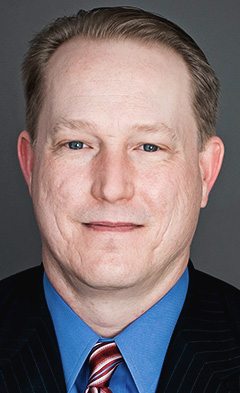

The internet is under all kinds of attacks from all kinds of people for all kinds of reasons. It’s not just the internet’s infrastructure that is under attack, so too is the very concept of the internet as an open communications platform serving the commonweal. Constructing effective technical defenses of the internet will require that America’s students learn and develop the quantitative disciplines known as STEM; Science, Technology, Engineering, and Mathematics. Constructing effective, ethical defenses of the internet will require that students study art and philosophy. The two educational paths are symbiotic... more
 U.S. federal court issues preliminary injunction, holding that enforcement of Canadian order requiring Google to remove search results would run afoul of the Communications Decency Act... Canadian company Equustek prevailed in litigation in Canada against rival Datalink on claims relating to trade secret misappropriation and unfair competition. After the litigation, Equustek asked Google to remove Datalink search results worldwide. Google initially refused altogether... more
U.S. federal court issues preliminary injunction, holding that enforcement of Canadian order requiring Google to remove search results would run afoul of the Communications Decency Act... Canadian company Equustek prevailed in litigation in Canada against rival Datalink on claims relating to trade secret misappropriation and unfair competition. After the litigation, Equustek asked Google to remove Datalink search results worldwide. Google initially refused altogether... more
 WIPO's newest overview of the Uniform Domain Name Dispute Resolution Policy (UDRP) succinctly states what decisions have made clear through the years: The UDRP's first test is only a "standing requirement." Standing, under the law, simply means that a person or company is qualified to assert a legal right. It does not mean or imply that one will necessarily prevail on any claims. The UDRP includes a well-known three-part test that all trademark owners must satisfy to prevail, but the first element has a low threshold. more
WIPO's newest overview of the Uniform Domain Name Dispute Resolution Policy (UDRP) succinctly states what decisions have made clear through the years: The UDRP's first test is only a "standing requirement." Standing, under the law, simply means that a person or company is qualified to assert a legal right. It does not mean or imply that one will necessarily prevail on any claims. The UDRP includes a well-known three-part test that all trademark owners must satisfy to prevail, but the first element has a low threshold. more
 The argument for end-to-end encryption is apparently heating up with the work moving forward on TLSv1.3 currently in progress in the IETF. The naysayers, however, are also out in force, arguing that end-to-end encryption is a net negative... The idea of end-to-end encryption is recast as a form of extremism, a radical idea that should not be supported by the network engineering community. Is end-to-end encryption really extremist? Is it really a threat to the social order? more
The argument for end-to-end encryption is apparently heating up with the work moving forward on TLSv1.3 currently in progress in the IETF. The naysayers, however, are also out in force, arguing that end-to-end encryption is a net negative... The idea of end-to-end encryption is recast as a form of extremism, a radical idea that should not be supported by the network engineering community. Is end-to-end encryption really extremist? Is it really a threat to the social order? more
 Are you passionate about preserving the global, open Internet? Do you have experience in Internet standards, development or public policy? If so, please consider applying for one of the open seats on the Internet Society Board of Trustees. The Internet Society serves a pivotal role in the world as a leader on Internet policy, technical, economic, and social matters, and as the organizational home of the Internet Engineering Task Force (IETF). more
Are you passionate about preserving the global, open Internet? Do you have experience in Internet standards, development or public policy? If so, please consider applying for one of the open seats on the Internet Society Board of Trustees. The Internet Society serves a pivotal role in the world as a leader on Internet policy, technical, economic, and social matters, and as the organizational home of the Internet Engineering Task Force (IETF). more
 In the case of Oy Vallila Interior Ab v. Linkz Internet Services, a 3-member WIPO Panel denied the Complainant's efforts to have the disputed domain name vallila.com transferred because the Complainant did not prove that the Respondent registered and used the disputed domain name in bad faith. The Complainant is in the business of providing fabrics and interior design services and claimed trademark rights in its registered mark VALLILA in the European Union. more
In the case of Oy Vallila Interior Ab v. Linkz Internet Services, a 3-member WIPO Panel denied the Complainant's efforts to have the disputed domain name vallila.com transferred because the Complainant did not prove that the Respondent registered and used the disputed domain name in bad faith. The Complainant is in the business of providing fabrics and interior design services and claimed trademark rights in its registered mark VALLILA in the European Union. more
 I have a somewhat unconventional view of 5G. I just happen to believe it is the right one. It is trapped inside a category error about the nature of packet networking, and this means it is in trouble. As context, we are seeing the present broadband Internet access model maturing and begin to reach its peak. 5G eagerly anticipates the next wave of applications. As such, 5G is attempting to both extend and transcend the present "undifferentiated data sludge" model of mobile broadband. more
I have a somewhat unconventional view of 5G. I just happen to believe it is the right one. It is trapped inside a category error about the nature of packet networking, and this means it is in trouble. As context, we are seeing the present broadband Internet access model maturing and begin to reach its peak. 5G eagerly anticipates the next wave of applications. As such, 5G is attempting to both extend and transcend the present "undifferentiated data sludge" model of mobile broadband. more
 In March of this year, the Federal Communications Commission (FCC) adopted an initial Notice of Inquiry (CG No. 17-59) to mitigate robocalls. In July, it adopted a Second Notice. Mitigating spoofed telephone calls is a global problem which every country in the world has been addressing as part of a global ecosystem for many years in intergovernmental and industry bodies, in academic R&D and patent filings, and industry products with ongoing activity continuing today. more
In March of this year, the Federal Communications Commission (FCC) adopted an initial Notice of Inquiry (CG No. 17-59) to mitigate robocalls. In July, it adopted a Second Notice. Mitigating spoofed telephone calls is a global problem which every country in the world has been addressing as part of a global ecosystem for many years in intergovernmental and industry bodies, in academic R&D and patent filings, and industry products with ongoing activity continuing today. more
 No baby boomers had been born when Congress enacted Title II of the Communications Act in 1934 as a means of regulating the Bell telephone monopoly, and the first Millennials were in elementary school when that monopoly was broken up in 1983. Title II was set to die along with plain old telephone service until the Obama administration decided Title II should be used to implement net neutrality -- the principle that consumers should have reasonable access to internet functionality. more
No baby boomers had been born when Congress enacted Title II of the Communications Act in 1934 as a means of regulating the Bell telephone monopoly, and the first Millennials were in elementary school when that monopoly was broken up in 1983. Title II was set to die along with plain old telephone service until the Obama administration decided Title II should be used to implement net neutrality -- the principle that consumers should have reasonable access to internet functionality. more
 Finally, Guyanese Internet users at all levels who are interested in internet governance issues and policy-making now have a local organization to address their interest. The Internet Society, a leading advocate for the open development, evolution, and use of the Internet for everyone, announced on October 10, 2017, at the official launch of the Internet Society Guyana Chapter that they were happy to finally have Guyana onboard. more
Finally, Guyanese Internet users at all levels who are interested in internet governance issues and policy-making now have a local organization to address their interest. The Internet Society, a leading advocate for the open development, evolution, and use of the Internet for everyone, announced on October 10, 2017, at the official launch of the Internet Society Guyana Chapter that they were happy to finally have Guyana onboard. more
 RIPE held its 75th meeting in Dubai in mid-October. As usual, there was a diverse set of presentations covering a broad range of activities that are taking place on today's Internet. The topics include issues relating to network operations, regulatory policies, peering and interconnection, communications practices within data centers, IPv6, the DNS, routing and network measurement. If that's not enough, the topic of the Internet of Things has been added as a Working Group in the RIPE pantheon. If you add address policy, database and RIPE services to the mix, you get a pretty packed five days with topics that would appeal to most Internet folks. more
RIPE held its 75th meeting in Dubai in mid-October. As usual, there was a diverse set of presentations covering a broad range of activities that are taking place on today's Internet. The topics include issues relating to network operations, regulatory policies, peering and interconnection, communications practices within data centers, IPv6, the DNS, routing and network measurement. If that's not enough, the topic of the Internet of Things has been added as a Working Group in the RIPE pantheon. If you add address policy, database and RIPE services to the mix, you get a pretty packed five days with topics that would appeal to most Internet folks. more
 IPAM solutions are the source of truth for IP resources on the network, but when performing IPAM functions such as assignments, reconciliations, DNS updates, network plans, or Regional Internet Registry (RIR) requests, IPAM is often limited by its integration with an OSS. Operational teams can find it challenging to complete routine tasks without an integrated IPAM solution due to siloed data pools and swivel-chair environments. more
IPAM solutions are the source of truth for IP resources on the network, but when performing IPAM functions such as assignments, reconciliations, DNS updates, network plans, or Regional Internet Registry (RIR) requests, IPAM is often limited by its integration with an OSS. Operational teams can find it challenging to complete routine tasks without an integrated IPAM solution due to siloed data pools and swivel-chair environments. more
 Complainants naturally want to prevail on their claims of alleged infringing conduct and respondents (when they appear) naturally do their best to resist having their domain names taken from them in proceedings under the Uniform Domain Name Dispute Resolution Policy (UDRP), but their success depends on their submitting the right constituents of fact and proof. In a forum that has adjudicated over 60,000 cases, it would be surprising if there were no questionable or badly reasoned decisions. more
Complainants naturally want to prevail on their claims of alleged infringing conduct and respondents (when they appear) naturally do their best to resist having their domain names taken from them in proceedings under the Uniform Domain Name Dispute Resolution Policy (UDRP), but their success depends on their submitting the right constituents of fact and proof. In a forum that has adjudicated over 60,000 cases, it would be surprising if there were no questionable or badly reasoned decisions. more
 In 1990, Teledesic was formed to deliver satellite-based Internet service. Cellular pioneer Craig McCaw, Microsoft co-founder Bill Gates and Saudi Prince Alwaleed bin Talal were early investors and Boeing was both an investor and the prime contractor. Teledesic hoped to offer global Internet connectivity using a constellation of 840 satellites in low-Earth orbit (LEO) at an altitude of 700 km... Teledesic failed. Twenty seven years later three companies SpaceX, OneWeb and Boeing are trying to do what Teledesic could not do. Will they succeed? more
In 1990, Teledesic was formed to deliver satellite-based Internet service. Cellular pioneer Craig McCaw, Microsoft co-founder Bill Gates and Saudi Prince Alwaleed bin Talal were early investors and Boeing was both an investor and the prime contractor. Teledesic hoped to offer global Internet connectivity using a constellation of 840 satellites in low-Earth orbit (LEO) at an altitude of 700 km... Teledesic failed. Twenty seven years later three companies SpaceX, OneWeb and Boeing are trying to do what Teledesic could not do. Will they succeed? more
 One of the most profoundly disruptive developments occurring in the cyber security arena today is the headlong rush by a set of parties to ubiquitously implement extreme End-to-End (e2e) encryption for communication networks using essentially unbreakable encryption technology. A notable example is a new version of Transport Layer Security (TLS) known as version 1.3. The activity ensues largely in a single venue... more
One of the most profoundly disruptive developments occurring in the cyber security arena today is the headlong rush by a set of parties to ubiquitously implement extreme End-to-End (e2e) encryption for communication networks using essentially unbreakable encryption technology. A notable example is a new version of Transport Layer Security (TLS) known as version 1.3. The activity ensues largely in a single venue... more
Sponsored byVerisign

Sponsored byWhoisXML API

Sponsored byVerisign

Sponsored byRadix

Sponsored byIPv4.Global

Sponsored byCSC

Sponsored byDNIB.com
